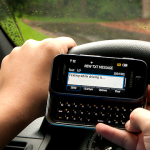ResMed unveils its non-contact sleep monitor

Sleep monitoring usually conjures up images of sensors placed all over the room or even in the bed making you think so much about the devices that you struggle to get off to sleep.
ResMed thinks it has the solution with its S+ system that it brags is the world’s first non-contact sleep system to come onto the market by using a wealth of data to give tips on how to sleep better.
When to find the best cyber shopping deals

'Tis the season to go and spend lots of money, as we approach Thanksgiving (in the US), Christmas, Black Friday, Cyber Monday and other shopping opportunities.
With November and December sales expected to top $616 billion dollars, payment processing specialist Merchant Warehouse has produced an infographic looking at what to expect from the holiday shopping season.
Uncovering the real value of online reviews

We've become used to the fact that for pretty much any product or service we want to buy there will be reviews available online to help us with our purchase decision.
These reviews matter to businesses as they can have an impact on sales. Open review community Trustpilot has carried out a survey looking at how online reviews can influence the bottom line.
Woojer: A wearable subwoofer that lets you feel sound [Review]

Music at a concert is different to music played at home, or in the car, because the high acoustic energy that surrounds you means you don't just hear the sounds, you feel them. There have been attempts in the past to marry sound with vibrations -- subwoofer chairs and vibrating vests, for example -- so that games or movies feel more realistic, but Woojer, which successfully raised $143,000 on Kickstarter, takes a subtler approach.
The matchbox sized subwoofer is worn on the body and connects between any audio source (your phone or a tablet, say) and headphones. The audio input -- be it a music track, a game or film -- is transformed into a tactile vibration, which you can feel throughout your body.
Usability survey reveals the most frustrating websites

We've all encountered websites that are badly designed or seem to be willfully hard to use and now a new survey reveals the sites which cause the most frustration and are likely to be rapidly abandoned.
Website FAQ technology provider AnswerDash has released the results of its first website survey revealing Comcast.com, IRS.gov and CenturyLink.com as this year's most frustrating websites for US consumers.
Update: Two months lapping up a satellite internet connection

Three months ago I reached the end of my tether. I'm lucky enough to live in one of the most beautiful and unspoilt parts of the UK (it nearly wasn’t part of the UK had the Scottish referendum on independence taken a different turn), but there's one problem: truly awful broadband. There is a 'choice' of one broadband provider who is capable of trickling sub 0.5Mbps connections into houses in the area -- and that's on a good day.
One Twitter rant later, a few emails exchanged with Satellite Internet led to the arrival of two installers to get me set up with a 20Mbps satellite connection. My initial impressions were great. The internet worked as it should for the first time in months. But my fear was that this was just a honeymoon period. So what’s the story nearly three months down the line -- what is it like to live with a satellite internet connection? Were my initial concerns about data usage well-founded?
Texting drivers are fully aware of the dangers

A new survey suggests that the vast majority of drivers text while behind the wheel, despite being fully aware of the dangers involved.
The research indicates that 98 percent of motorists who own a mobile phone and text regularly are aware of the risks, yet 75 percent still admit to texting while driving.
AOC Q2770PQU: A fantastic, and surprisingly affordable 27-inch WQHD monitor [Review]

If you’re considering buying a 27-inch monitor, you really need to be looking at one which offers WQHD resolution (2560 x 1440), rather than the standard Full HD (1920 x 1080) found in a lot of models. The pixels per inch difference (108.79 PPI vs 81.59 PPI) will result in a much greater level of detail and clarity which, if you’re working with images, you’ll definitely notice and appreciate.
The problem with buying a 27-inch WQHD screen is cost, but AOC’s offering is a lot more affordable than most -- just £360 from Ebuyer including VAT and delivery -- and it offers an awful lot for the money, including a fully adjustable stand, so you can use the screen in both landscape and portrait modes.
The smarter the phone the harder the fall

Using your smartphone can be dangerous according to findings from a new study by gadget insurance specialists SquareTrade and it's people as well as devices that are getting damaged.
A poll of UK smartphone owners found that a stunning -- or possibly stunned -- 86 percent had tripped, stumbled or hit a lamppost or wall when distracted by using a mobile device. Stumbling incidents accounted for 37.2 percent of people damaging their phones in the last two years with over half of all accidents happening in the home. Also 18 percent of accidents were caused by someone other than the phone owner.
The ebook industry needs to make reading more social

The music, film and TV industries have all undergone radical transformations over the last fifteen years. In contrast, the publishing industry is only now feeling the full force of technological change.
Ebooks and ereaders are changing consumers' reading habits and throwing up serious questions about how the industry can go forward on a sustainable footing. Major players in the music industry eventually solved their own sustainability issues by embracing change and incorporating subscription-based services in their business models. However, ebooks pose different problems. Subscription services alone particularly in emerging markets where content piracy is rife, do not seem viable. The magic bullet could be 'social'.
How mobile users think and behave online

The lines between business and personal mobile use are blurring as the way consumers use their devices becomes increasingly diverse. This is leading mobile users everywhere toward an always-connected existence, dominated by mobile devices, and where brands must work even harder to meet their visitors' needs.
With this in mind, Netbiscuits recently conducted a survey of more than 6,000 consumers from six countries, asking them for their insights and thoughts around mobile web usage and behavior. Here, Netbiscuits CEO Daniel Weisbeck recaps the top ten findings from the UK, US, Germany, China, India and Brazil.
Bluesmart debuts its intelligent 21st Century suitcase

There are a few things that annoy the modern jet-setter more than anything. It is those pesky baggage restrictions for some. For others, it’s the airline’s uncanny ability to lose your luggage at the most inopportune times. Or maybe its those pesky TSA security lines or a lack of power outlets to charge your electronic devices.
Bluesmart Technologies wants to solve those problems in a new high-tech carry-on suitcase, and from the looks of it, the traveling public is ready to give the firm their hard-earned money.
42 percent of American PC users suffer daily or weekly attacks on personal data

A new survey conducted by Microsoft shows that more than one in four PC owners in the US is suffering weekly, or even daily, attempts by criminals to gain access to their private data. Microsoft found that 22 percent of tablet users suffered similar data access attempts, and that general levels of concern about scams has increased. While "traditional" scams -- such as those asking for upfront payments or relating to fake lottery winnings -- have actually decreased, there are now more social media-based scams than a couple of years ago.
It's not all bad news. While scams might be on the increase, web users are seemingly more aware of the risks involved in using the internet and take proactive steps to protect themselves and their data. As more people use mobile devices to get online, more phone and tablet users are taking precautions.
EHEAR E2: A wearable Bluetooth video camera that won't break the bank [Review]

You never know when you’ll see or hear something interesting when out and about. If you want to record what's going on around you, the easiest solution is to whip out your smartphone, but that’s not always practical -- if you’re driving for example, or performing any task that requires both hands (like mountain biking down a treacherous slope).
The EHEAR E2 is a small finger-sized recording device that hooks over your ear, and lets you record what you see. You can fire up the camera with a single tap, and then view your recordings on a phone or tablet later on.
Millennials prefer to shop using mobiles

A new survey carried out by application delivery company Instart Logic looks at the shopping habits of millennials in order to help retailers set their ecommerce priorities as the holiday season approaches.
The results show that millennials -- those born between the early 1980s and early 2000s -- are more likely to use mobile devices to shop, with 55 percent doing so. They still like to use browsers, however, with 57 percent preferring them over native apps.
© 1998-2025 BetaNews, Inc. All Rights Reserved. About Us - Privacy Policy - Cookie Policy - Sitemap.